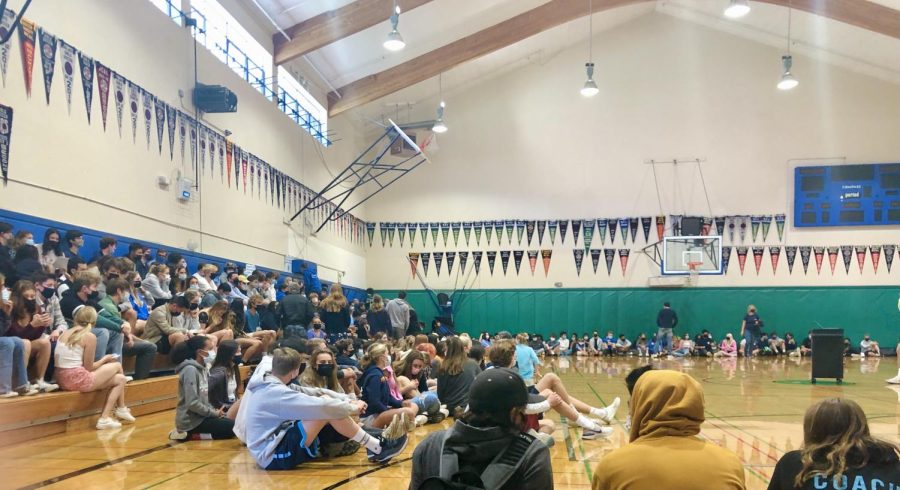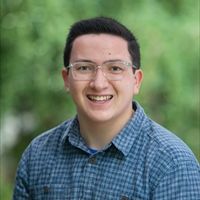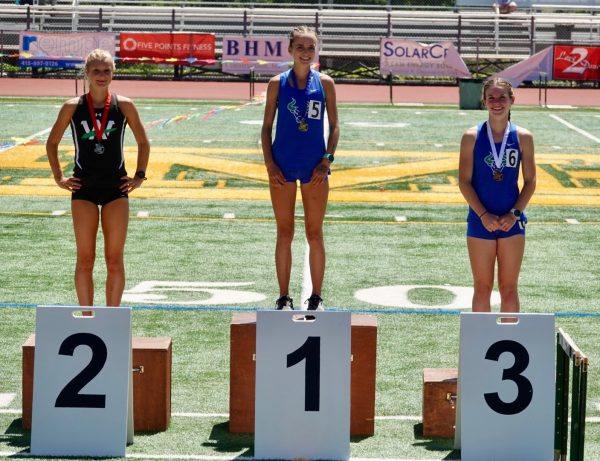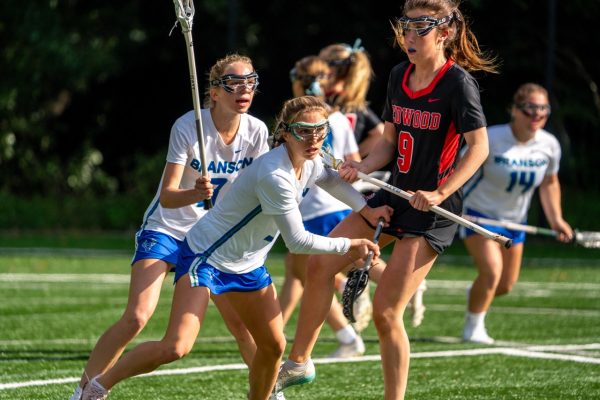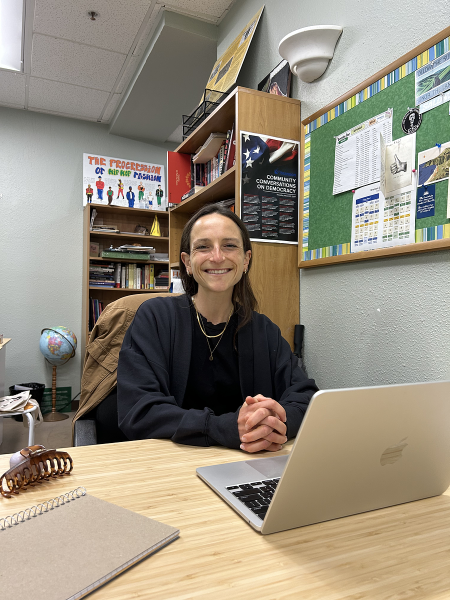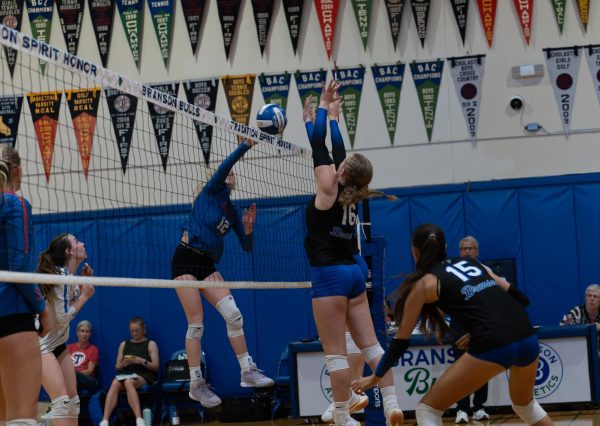Pandemic rules loosened, could further relax in new school year
Masked students and faculty gather indoors for assembly.
October 13, 2021
After raging across Marin County and the rest of the country for more than a year and a half, it may feel as if the pandemic is slowing down. But at Branson, changes to pandemic practices this year have pushed the community closer to a return to normalcy, while also continuing to ensure the safety of everyone.
Emily Easom, Branson’s COVID-19 and health coordinator, said this year’s pandemic protocols aim to “make this school year as normal for all students and faculty and staff as possible, while of course keeping everyone safe on campus.”
Head of School Chris Mazzola wrote in a September email that after “additional consultation” with health officials, the school’s COVID-19 team decided to make masks optional outdoors.
“We were told from Public Health that COVID doesn’t like the outdoors, so there wasn’t much of a risk in terms of not masking outdoors,” Easom said.
Unlike school last year, Drew Wilkinson, a sophomore, said, “I’m meeting new people this year, having actual fun and taking part in the school community! I look forward to the traditions that Branson is known for.”
For freshmen like Zachary Redlin, “It’s so much better this year, there’s more freedom, you really get to know people a lot more and overall it’s more interactive. I definitely feel a part of this community that’s newer to me.”
Marin has the highest overall vaccination rate of all counties in California and is considered among the Top 10 most highly vaccinated counties in the U.S. as of this writing. Furthermore, 99% of the Branson community is fully vaccinated, after the school this summer effectively required proof of vaccination.
“It’s gratifying to see the impact,” Dr. Matt Willis, the county’s public health officer, said in a webinar. “There is a clear correlation between communities with high vaccination rates and low case rates.”
Despite this milestone, the Marin public health community believes the pandemic isn’t over yet because of increases in cases elsewhere in the country.
Dr. Lisa Santora, Marin’s deputy health officer, said in a webinar, “We see the fourth wave ending, but we are also preparing for a post-Halloween fifth wave … and for new variants like delta and its mutations to arise from breakthrough cases among our communities.”
As the school year progresses, the Branson COVID team will continue to be mindful of the delta variant and other mutations, as well as heed advice from public health officials.
“Yes, these new variants are something we kind of have to work our way around and work our way through, and that’s exactly what we’re going to do, by perceiving the guidance from higher authorities that have the best sense of judgment,” Easom said.
“As a school, we know students and faculty and staff are going to do what they want to do,” she said about upcoming Halloween celebrations. “But we are not invisible to this, so at the same time have fun, but make smart choices.”
Alexander LaMonica, another sophomore at Branson, echoed a similar sentiment.
“I strongly believe that if things keep going the way they are right now, we’ll be back to normal very quickly, so just follow basic protocols and there’s nothing to worry about,” he said.
As for the future of indoor masking, Easom said, “Hopefully we’re going towards a place where we can be more lenient, we’re just waiting for a final word from [Marin] Public Health.”

